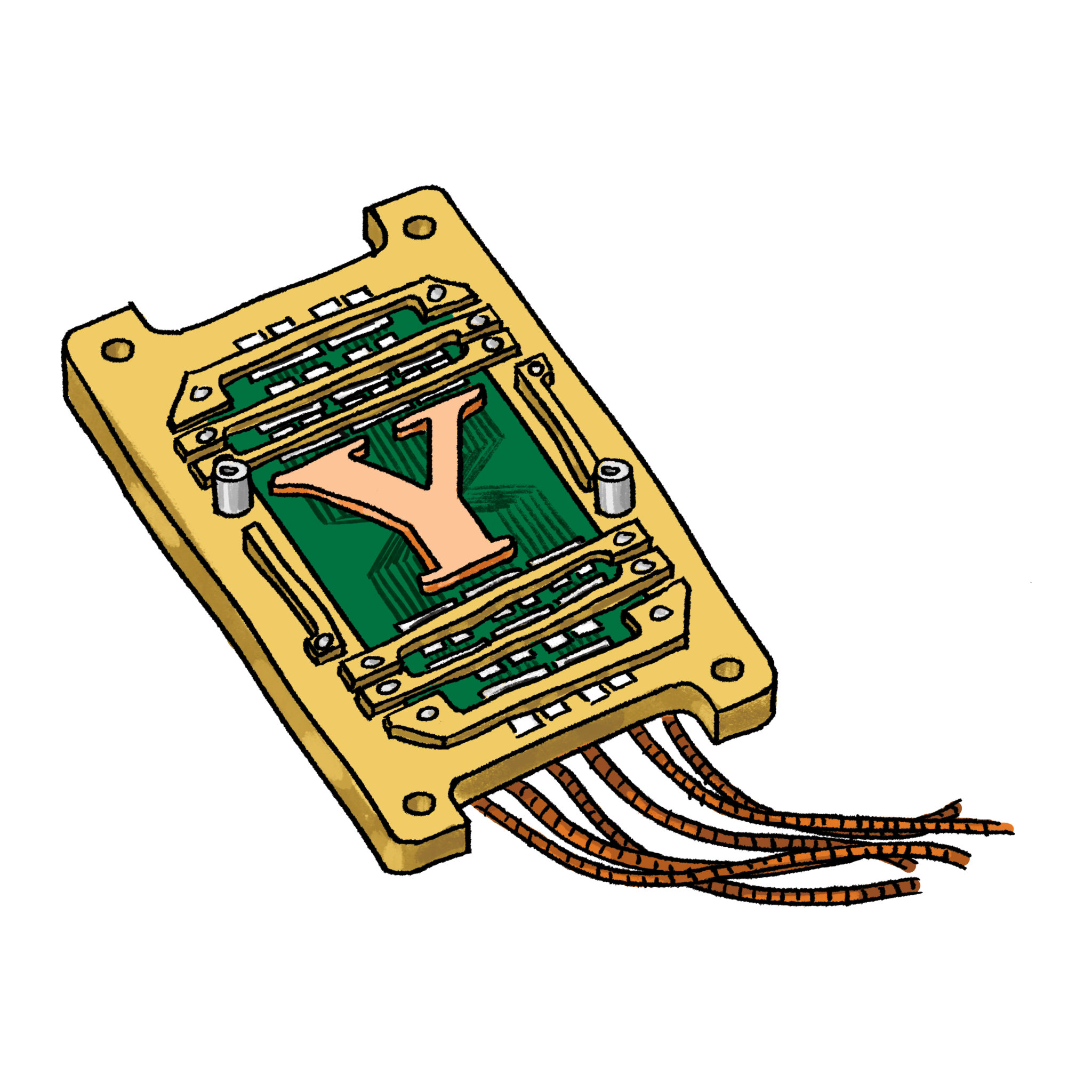
Yale Daily News
A group of Yale researchers racing to build the world’s first quantum computer was recently profiled by The New York Times.
If the project is successful, the quantum computers could perform calculations at a much faster rate than current supercomputers. The new computers’ applications could range from advancing machine learning and data analysis to developing new medications for diseases. After six Yale researchers determined they had investigated enough quantum principles to build a practical computer, three of the researchers founded a company in 2015 dedicated to building and selling quantum computers. Their efforts were covered nationally after the company received over $18 million in venture funding from three different firms.
“Since the late ’90s, there was always hope that processing information in the quantum way would give new powers to computing, but there’s a large set of capabilities you need to do so. And, overtime, we’ve had more success with them,” said Robert Schoelkopf, one of the initial researchers and a co-founder of Quantum Circuits, Inc.
QCI is not the only company hoping to build a quantum computer; according to the New York Times article, Google, IBM and Intel are leaders in the quantum computing arms race.
Current computers store information as bits, with each piece of information processed as an electronic signal and recorded as either a one or a zero. While quantum computing systems are difficult to visualize due to the interactions of subatomic particles, such as electrons and photons, quantum bits can simultaneously store a one and a zero. This allows these qubits to hold more information at once, making quantum computers, in theory, exponentially more powerful.
In the past, qubits had a short lifespan, disappearing nearly instantaneously and making systems that used them prone to calculation errors. According to Kevin Chou GRD ’17, a researcher in the Schoelkopf lab, the lab has been developing techniques to perform reliable computations despite these errors, both by building qubits with longer lifespans and by performing quantum correction to detect and fix errors when they occur. In particular, Schoelkopf and his colleagues pioneered a solution to the frequent errors by using superconducting circuits — circuits with qubits that have been built with materials that exhibit quantum properties at extremely low temperatures, minimizing electrical resistance.
“With the implementation of [superconducting circuits], we take a modular approach — creating small circuits which can then be attached together, rather than trying to build one large one,” said Lev Krayzman GRD ’21, a researcher in the lab. “As far as I know, this is not done by any other superconducting quantum computing group.”
Although the modular approach is unique to the Yale quantum computing group, using superconducting circuits has become the primary subject of quantum research across the industry. According to Schoelkopf, many of his former students are working on quantum computing projects using superconductors at tech companies like IBM and Rigetti Computing.
Schoelkopf, who co-founded QCI in 2015 with Yale professor Michel Devoret and Senior Research Scientist Luigi Frunzio, said he and his colleagues decided to establish a separate entity that could focus on commercialization, which is outside the realm of a university research group’s study.
While the University lab studies the scientific principles behind quantum computing, QCI focuses on engineering and commercialization of the computers.
Schoelkopf noted the importance of collaboration between academia and the commercialization sector in translating research to product development.
“Because this is a new field, to build quantum computers, we need experts in the research labs to participate and advise the engineering part,” Schoelkopf said. “That’s the key thing. This isn’t an established industry yet.”
Although QCI has not yet created a functional quantum computer, the team recently received new funding totaling $18 million from Canaan and Sequoia Capital, Tribeca Venture Partners, Osage University Partners and Fitzgate Ventures. Schoelkopf said the funding is an indication of how close the team is to actualizing its product.
Even though Google, IBM and Intel are all working toward building the first quantum computer, researchers in the Schoelkopf Lab see the interplay less as a competition than as a comparison of ideas.
Schoelkopf said that large tech companies may not even have a leg up on smaller quantum computing companies like QCI.
“It isn’t clear how much of one’s expertise of conventional computing really translates into quantum computing,” he said.
Schoelkopf emphasized that close collaboration among Yale researchers led to his lab’s success in the field of quantum computing. While it is necessary to have a critical mass of scientists working together, his relatively small lab group is able to rival companies like Google and IBM because the professors teamed up and supported one another, he said.
Researchers in the lab told the News they also perceived a collaborative environment that helped persuade them to join the lab.
“I joined the lab because I was blown away by the collaborative atmosphere in the lab and how everyone was genuinely excited about solving new areas of quantum physics,” said Yvonne Gao GRD ’18.
Schoelkopf and his colleagues noted that Yale has been very supportive of their research, updating their University-affiliated labs with the latest technologies, hiring world-class faculty and helping patent their new discoveries.
Schoelkopf will take a leave of absence to become CEO of QCI in January.
Serena Cho | serena.cho@yale.edu







